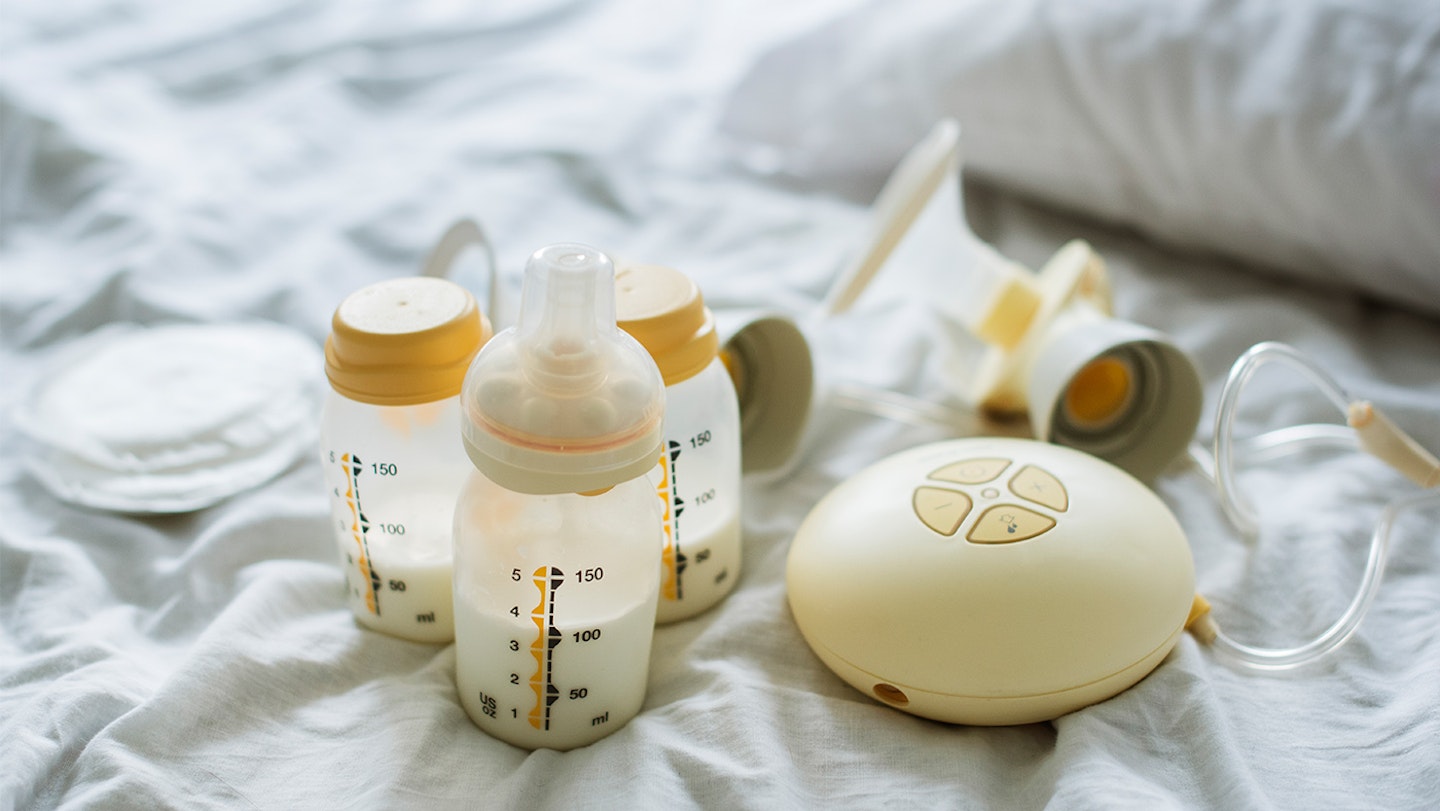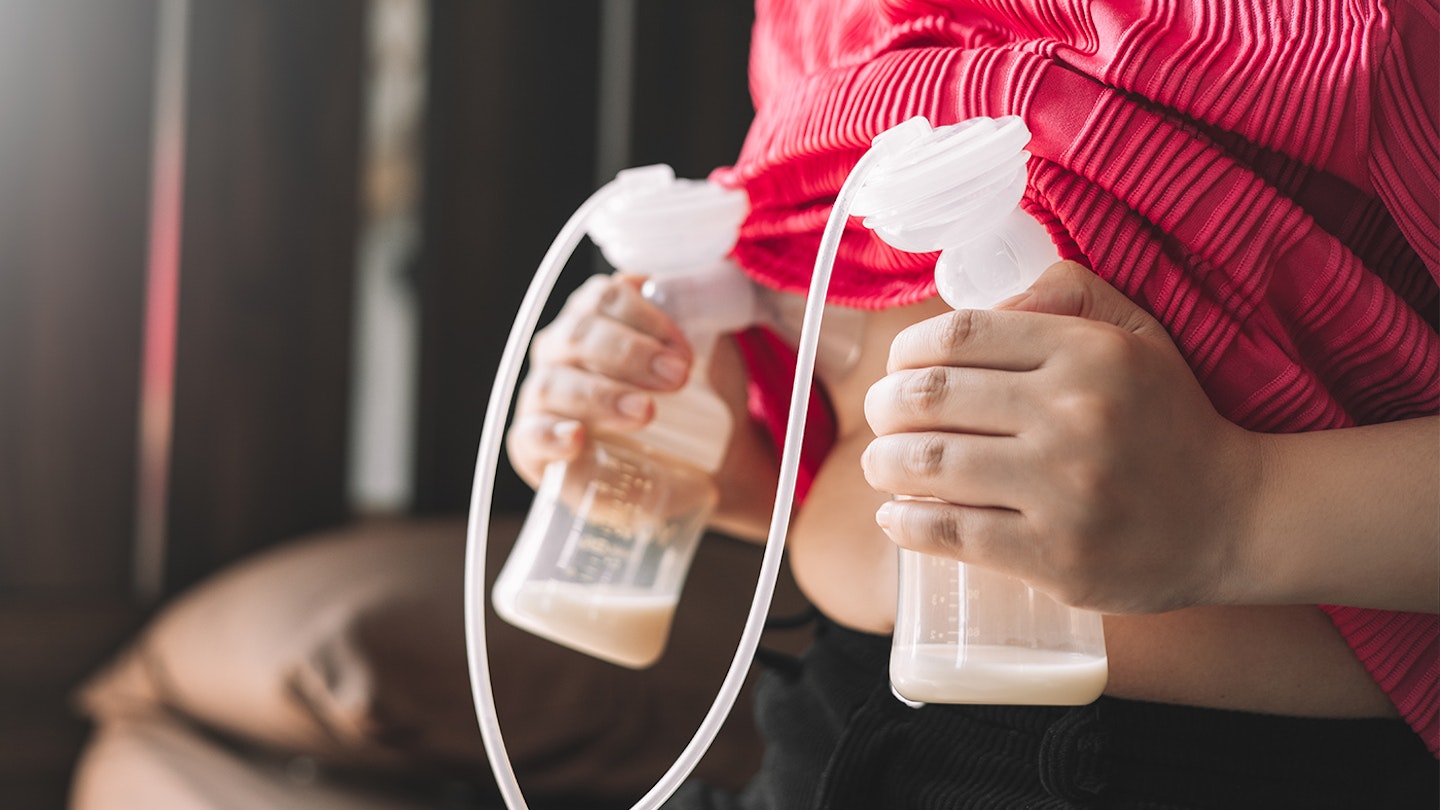If you've made your choice from the best breast pumps and are just getting started on your pumping journey or are pregnant and considering your options, you may be wondering the best time to pump breast milk.
Expressing breastmilk provides you with options to give your milk to your baby for as long as possible, whether it is until you are able to start breastfeeding, exclusively pumping or to complement breastfeeding.
We spoke to Medela’s Lactation Consultant, Sioned Hilton to find out more.
What is the best time to pump breast milk?
The best thing you can do when thinking about when to pump is to find a time that fits your routine with your baby.
Try to take away any pressure to find the ideal time, but early morning or mid-afternoon is a good starting point. Relax, make yourself comfortable and put your feet up. When baby is feeding, you can begin to pump on the other side.
Some mums find mid-morning best, others choose to pump before they go to bed. Some mums set the alarm for a late-night pumping session. It is a case of giving it a go to see what suits you and your baby best, remember your baby should always be the priority.
It is best to wait until you have passed the 3-4 week baby growth spurt before starting to express where possible, as during this time your baby will want to feed frequently.
How often should I pump?
As a general rule, if you choose to express, mimic your baby’s feeding pattern every 2-4 hours.
However, how often you pump will vary from each mum and their individual journey and requirements. For example, if you are only wanting to pump occasionally perhaps with a single electric or manual breast pump, this will be very different to a mum who plans to pump frequently with a double electric pump to incorporate their expressed milk into their routine more regularly.
When it comes to pumping consider what you are hoping for from your expressing journey. Is it to have a stash of milk in the freezer? To try power pumping? Is it to support you when returning to work? Do you leak when you feed or are you planning on exclusively expressing? Once you’ve thought about your personal requirements, then consider which pump will be best for you.

What is the best time to pump breast milk if exclusively pumping?
If you are exclusively expressing, it is recommended to pump 6-8 sessions in 24 hours to establish your supply in the first month after birth and thereafter to aim for 6 sessions with nighttime pumping to maintain milk supply.
Using the right pump will make all the difference to having the most effective pumping sessions, using a hospital-grade pump is recommended if you are planning on exclusively expressing, the Medela Symphony can be rented for use at home and is ideal for those exclusively expressing.
Can I increase my milk production by pumping milk?
If your baby is not breastfeeding effectively or is unable to breastfeed, it is important to consult with your health care professional to start pumping early, frequently and effectively to help your milk to ‘come in’ and to establish a copious supply.
For mums who need to pump, the first days after birth before milk has ‘come in’, many breast pumps mimic the natural sucking behaviour of the breastfeeding baby.
For mums who choose to express, using a double breast pump with correctly sized breast shields is proven to effectively drain the breast and support 18% more milk volume and higher energy milk.
Studies have shown that pumping in or just after skin-to-skin cuddles with your baby yields more milk than when pumping away from your baby. If this is not possible, having a picture or video of your baby, or an item of worn clothing when you pump can help trigger that all-important milk ‘let-down’ for the milk to start flowing.
About the expert
Medela’s Lactation Consultant Sioned Hilton has over 25 years’ experience working with mums across the UK, she has worked as a registered general and paediatric nurse, including specialist neonatal nursing, has a BSc in Specialist Community Public Health Nursing and accreditation as a registered International Certified Lactation Consultant.
